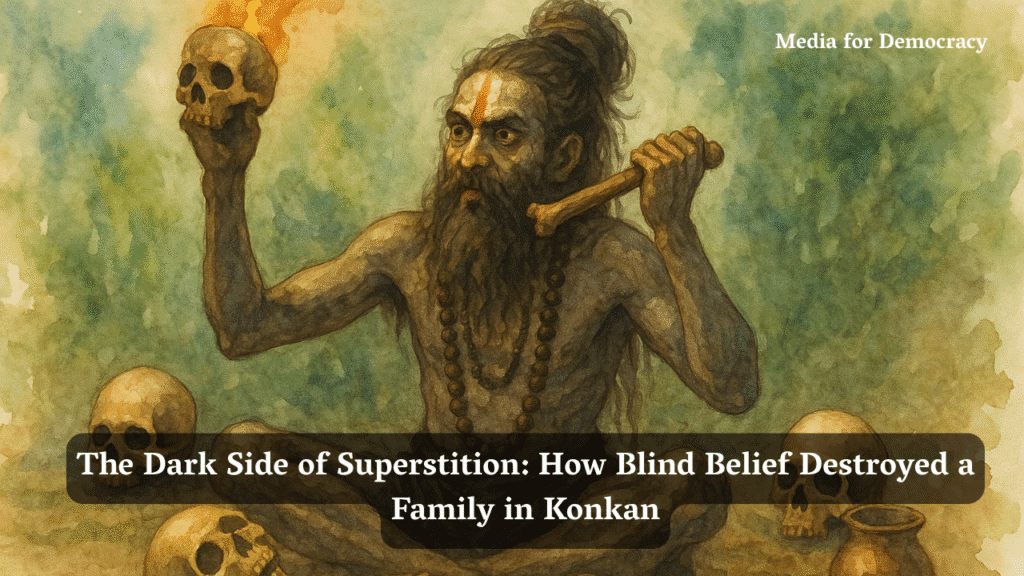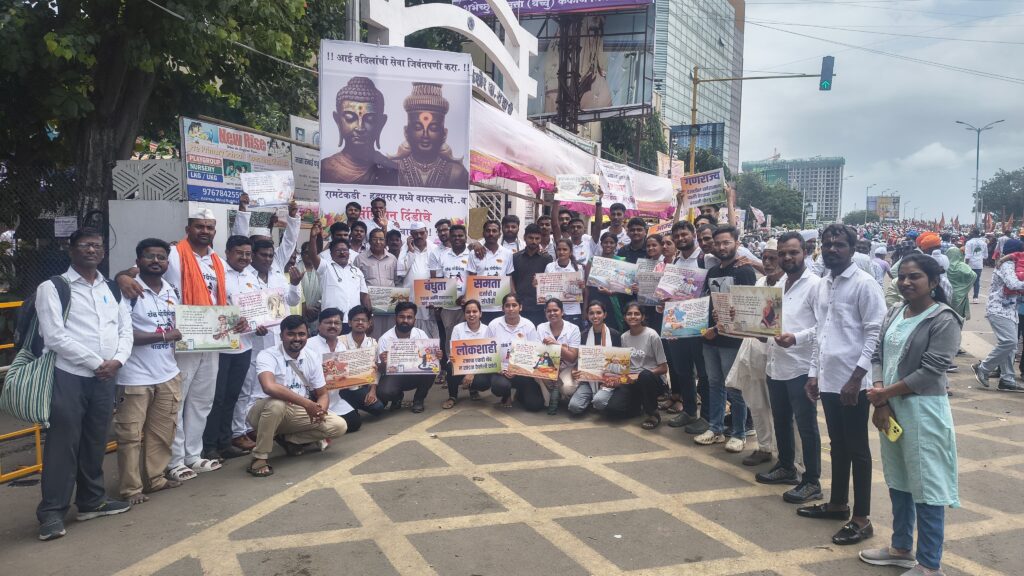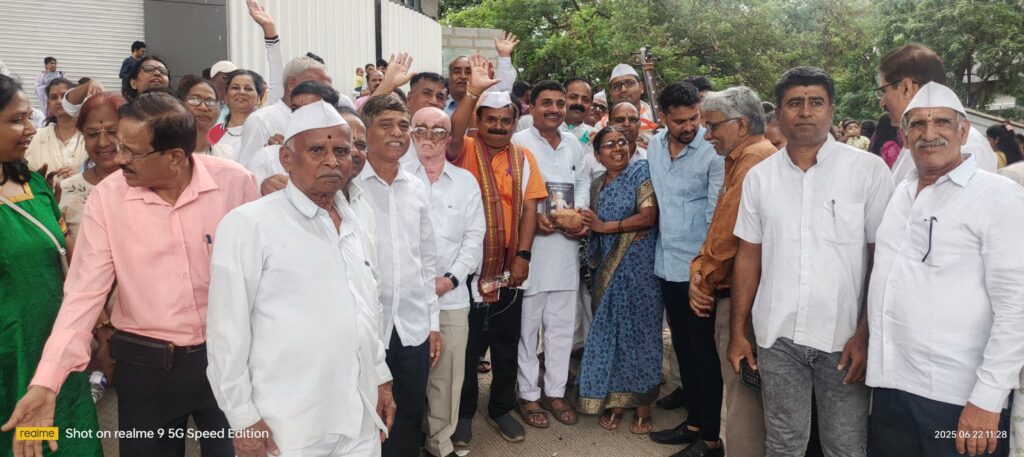Sudipa Mathur | 5th September 2025
The story of the Kamble family from Konkan’s Diveagar village is a very heartbroken one, but it is also a story that needs to be told. It’s a story about hope, desperation, and how dangerous superstitions can be. It’s a story that shows us why we need to think more carefully and not just believe everything we hear, especially when we are in a tough spot.
Mr. Kamble was a fisherman, but his life had become very hard. He wasn’t catching enough fish, and it was becoming difficult to even feed his wife and their only son. To make things worse, his son had fallen sick with a strange disease that no one could figure out. On top of all this, Mister Kamble had an old loan that he couldn’t pay back, and the debt was growing bigger every day. His wife, who we will call Mrs. Kamble, tried to help by working as a house cleaner in other people’s homes, but still, life was a struggle. They were losing hope, feeling like their family was cursed with bad luck.
One day, they heard a rumor that a very powerful “baba” had come to their village. People were saying that this baba was special, that he had come from a place called “patal lok” and had magic powers to cure people and solve their problems using something called “tona totka,” which is a type of black magic ritual. For the Kamble family, who had tried everything and were at their lowest point, this sounded like a miracle. They decided to go and meet the baba.
When they went to see him, the baba looked at them and told them exactly what they had been feeling. He said that their family had been cursed by their ancestors, which was why they were facing so much bad luck and suffering. He told them that to break this curse, they had to perform a specific ritual. He instructed them to cut off a rooster’s head, collect its blood in a pot, and mix it with some special herbs he gave them. Then, they had to seal the pot with a black cloth and bury it in their backyard. The baba said they must open the pot after 14 days and the curse would be gone. To make sure the magic worked, he asked them to give him 60,000 rupees in cash, along with some rice and fruits.
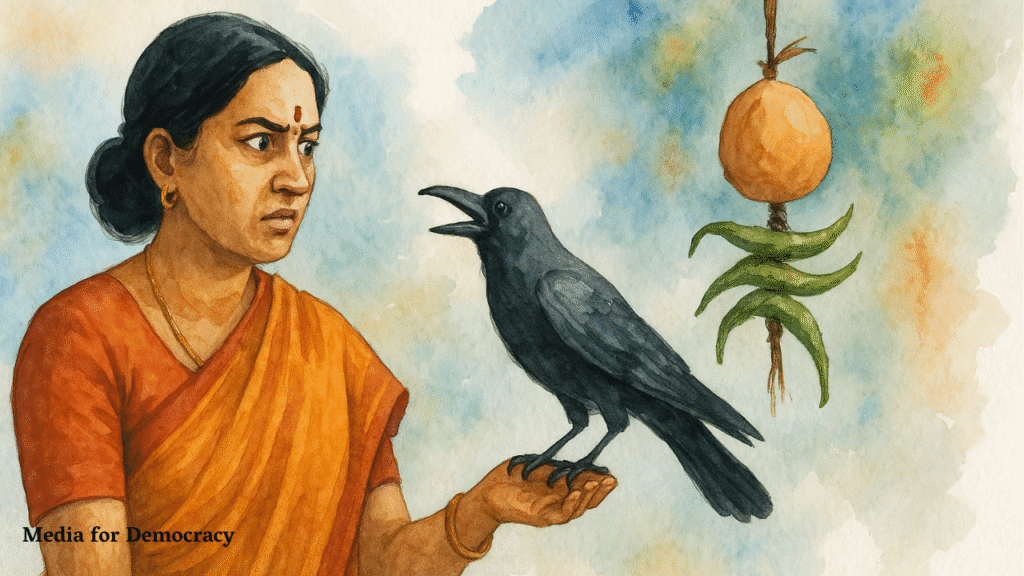
Mr. Kamble and his wife believed him completely. They saw this as their only chance to save their family and their son. They were so desperate that they forgot all about their common sense. Even though they were already deep in debt, they decided to sell Mrs. Kamble’s jewelry, which was all they had left of value. They gave the money to the baba, and for the next two weeks, they waited with a nervous feeling, holding on to a tiny bit of hope.
The day came to dig up the pot. With trembling hands, they dug and dug until they found it. But when they opened it, their hearts sank. There was nothing inside but the same old stuff they had put in. There was no change at all. Their lives were still the same. The baba’s promise was just a lie. When they went to confront him and ask for their money back, he became angry. He threatened them, saying that if they went to the police, he would use his “powers” to bring even greater misfortune on them. The Kambles were not just financially broken; their belief in everything was shattered. The hope they had felt for two weeks was gone, replaced by deep shame and a feeling of being completely betrayed.
The Kamble family’s story ended in the worst way possible. Without any money for his medical treatment, their son died. The parents, who had lost everything, were left with no hope at all. They saw no way out of their misery and took their own lives. Mrs. Kamble died by hanging herself, and Mr. Kamble was found dead after consuming rat poison. It’s a heartbreaking ending that shows us how dangerous this kind of exploitation can be.
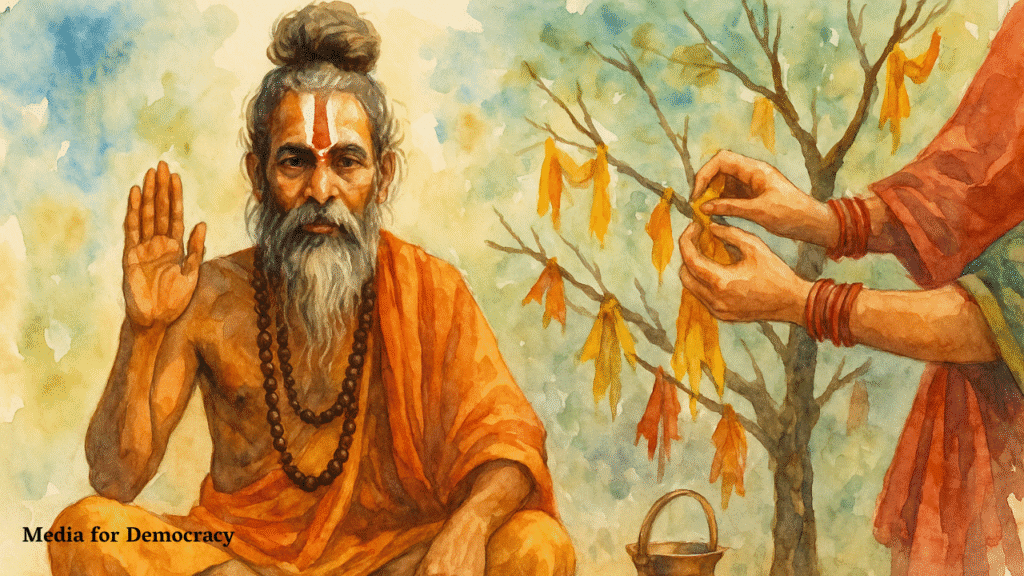
The Perils of Superstition and the Path to Change
This tragedy is a sad example of how superstition can take over our lives. When we are facing huge problems like poverty and sickness, we are most vulnerable. We look for any solution, even if it doesn’t make sense. The baba used clever psychological tricks to make the Kambles believe him. He spoke to their biggest fears—the fear of a curse and the fear of losing their son. He made them feel that their problems were not because of normal reasons but because of something supernatural. This kind of thinking, this blind faith in rituals and fake magic, is a big problem in our society. It makes people give away their hard-earned money and lose their dignity, all for a false promise. The Kambles were trapped in a cycle of fear. They believed that if they stopped following the baba’s instructions, things would get even worse. This fear is what keeps many victims from speaking up or seeking help.
The story of the Kamble family shows us a few important things that we need to think about. This isn’t just a single event; it’s a social problem that happens to many people, especially in places where education and awareness are not very high.
First, we need to focus on education. We need to teach people, especially in villages, about the difference between science and superstition. We should encourage them to trust doctors for illnesses and to trust smart decisions for financial problems, not some baba who promises magic. We need to create programs and campaigns that show people how these fake magic tricks are done so that they can’t be fooled.
Second, there needs to be a strong legal system to stop these fraudsters. People who trick others using false promises of magic and fear should be punished very strictly. The police need to be ready to listen to these kinds of cases and take action, so that victims feel safe to come forward.
Third, we must create safe spaces and support groups for victims. The Kambles felt so much shame and isolation after what happened. They were too scared to go to the police and were probably too ashamed to tell anyone else in their community. We need to make sure that people who have been scammed know that it’s not their fault and that they can get help. They need to be given emotional and psychological support so they can heal and start over.
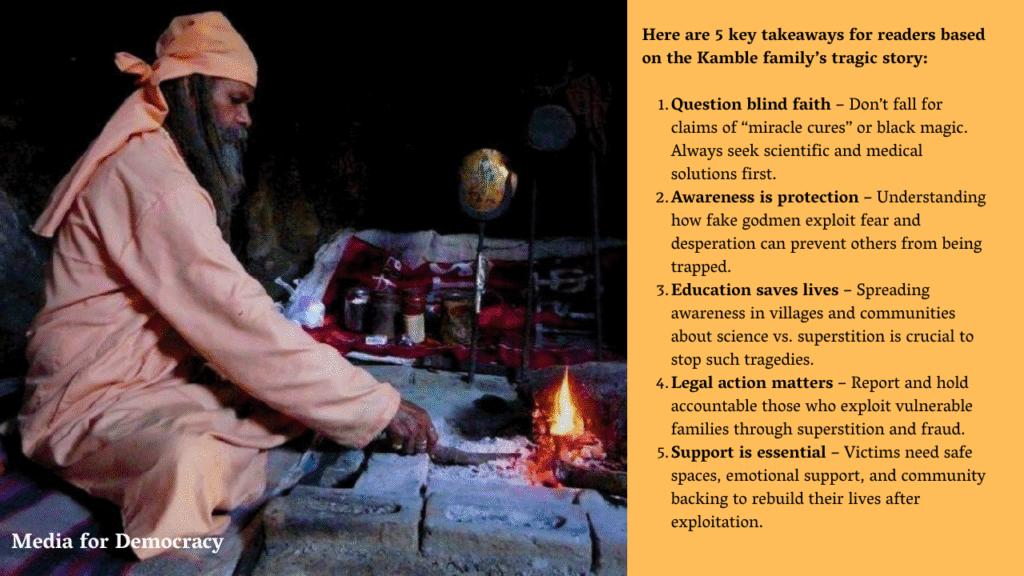
This is not just a problem of money; it’s a problem of life and death. The Kamble family’s tragedy is a loud wake-up call for all of us. We must work together to fight against blind belief and fake godmen. We must help people find hope in the right places, in education, in science, and in a supportive community, not in the empty promises of a fraud. The lives of many more families depend on it.
Sudipa Mathur is a media researcher who explores how culture, prejudice, and social realities shape lives. Her writing challenges stereotypes and exposes hidden injustices.

